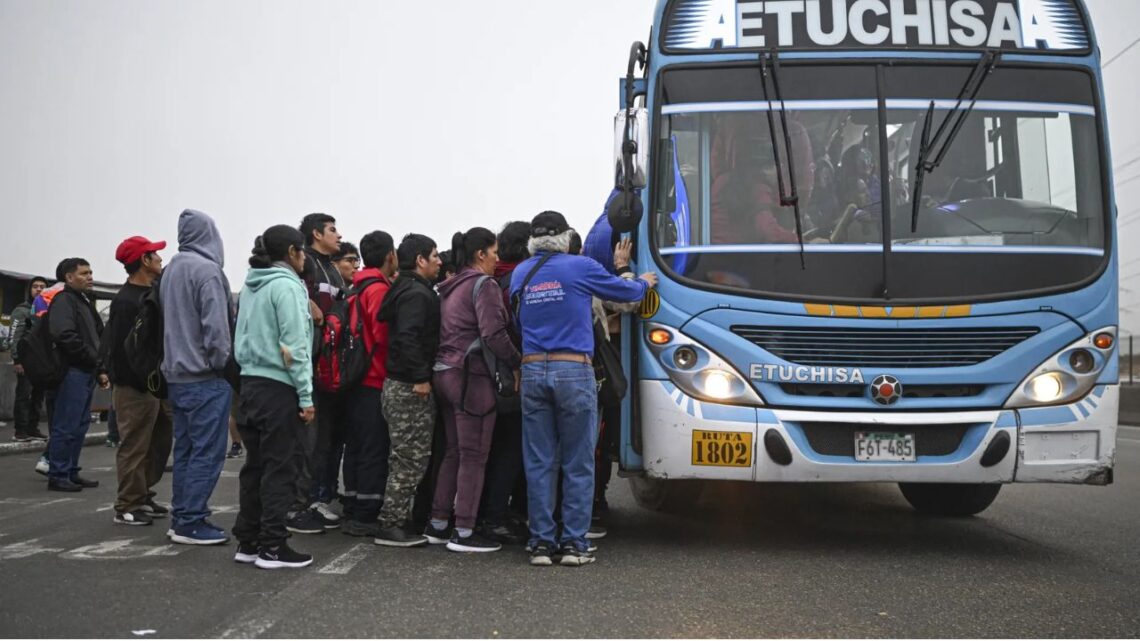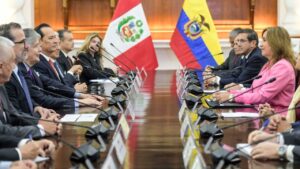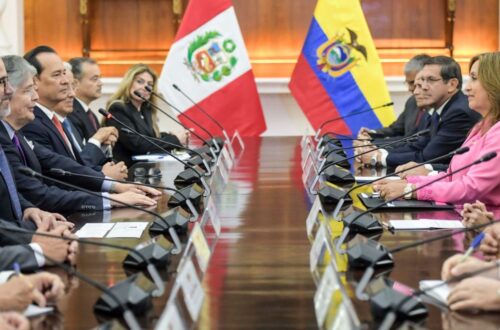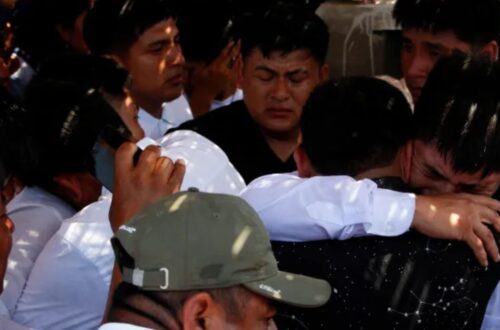n a dramatic turn of events, the transport strike scheduled for October 7 has been canceled, following a key meeting between the main transport unions and the Presidency of the Council of Ministers (PCM).
Prime Minister Eduardo Arana confirmed the decision after more than three hours of talks with industry leaders.
In that press conference, Arana revealed that five major agreements were hammered out — including the launch of a working group with authorities to tackle the security crisis plaguing the sector.
This article explores all the details — the agreements, the demands, the reactions, and what this means for commuters, drivers, and the government.
What Led to the Strike Threat
- In the days leading up to October 7, some transport union leaders had threatened to extend the October 6 strike by 48 hours, citing a lack of governmental response to their demands.
- The calls for protest were driven largely by rising extortion, threats, and violence targeting drivers, conductors, and transport workers.
- Prime Minister Arana and union heads convened to avert the escalation. During that meeting, the government agreed to offer concrete responses to the security crisis, which ultimately led the unions to call off the October 7 strike.
Five Key Agreements from the Meeting
Here’s a structured view of what was agreed upon:
| Agreement # | Content of Agreement | Purpose / Benefit |
|---|---|---|
| 1 | Establish a working group with PCM and transport stakeholders | To coordinate long-term solutions, meet first on October 14 |
| 2 | Executive branch will provide support to drivers, collectors, and victims | Safety and financial aid where needed |
| 3 | Coordinate with Public Prosecutor, Judiciary to set up flagrancy units and block cell phone lines in prisons | Crack down on extortion networks and internal collusion |
| 4 | Avoid actions disrupting transport service; any proposals will be coordinated in advance with authorities | Prevent abrupt shutdowns or unrest |
| 5 | Suspend continuation of October 6 shutdown; restore services on October 7 | End the 48-hour extension threat |
These agreements form the backbone of the deal that led unions to call off the planned strike.
Reactions & Tensions
1. From the Government
Prime Minister Eduardo Arana emphasized that dialogue is essential to reaching stable, durable solutions.
He acknowledged that the violence faced by transport workers is a criminal problem, not just a labor issue, and pledged real commitment via the Ministries of Transportation, Interior, and local transport agencies.
Arana also called on union leaders and workers to report all extortion cases promptly so law enforcement can act faster, and showed solidarity with families affected by violence.
2. From Union Leaders
Not all were entirely satisfied. Miguel Palomino, president of the National Drivers Association, criticized the timing, arguing that action should’ve started immediately, not in a week.
He called for accountability, including possible resignations at the Interior Ministry, and insisted that the issue of violence and driver deaths must be addressed with urgency, not promises.
Palomino also invited dissenting voices within the unions to unite with him, stating he disagreed with lifting the strike without seeing immediate action.
What the Transport Unions Wanted
The unions’ demands were focused and urgent — centered on safety, legal protections, and government accountability. Key requests included:
- Guarantees of safety for drivers, collectors, and operators amid a surge in extortion and violence.
- A state of emergency declaration for urban transport in Lima and Callao to enable stronger measures against criminal groups.
- Investigation and prosecution not only of criminal extortion syndicates but also any complicity within law enforcement, judiciary, or state agencies.
- Urgent legal reforms, bills, or regulations aimed at combating extortion targeting public transport.
Implications & What Happens Next
- With the strike off the table, urban transport services resume as normal on October 7.
- The newly formed working group will be critical. Its outcomes will test whether the agreements translate into real, tangible change.
- The government must quickly show results — especially in combating extortion and prosecuting criminals — or risk losing trust.
- The unions will remain under pressure to monitor progress, hold authorities accountable, and act if promises are broken.
- Drivers and commuters are watching closely; any further disruption could amplify frustration.
The cancellation of the October 7 transport strike marks a temporary victory of dialogue over confrontation. The five key agreements signal a willingness from the government to engage with the unions’ demands.
But words must translate into action: the working group’s success, timely anti-extortion operations, and genuine protection for drivers will determine whether this truce holds.
For now, citizens can breathe easy knowing their daily commutes won’t be disrupted — but the real test lies ahead as both sides work to turn promises into progress.









